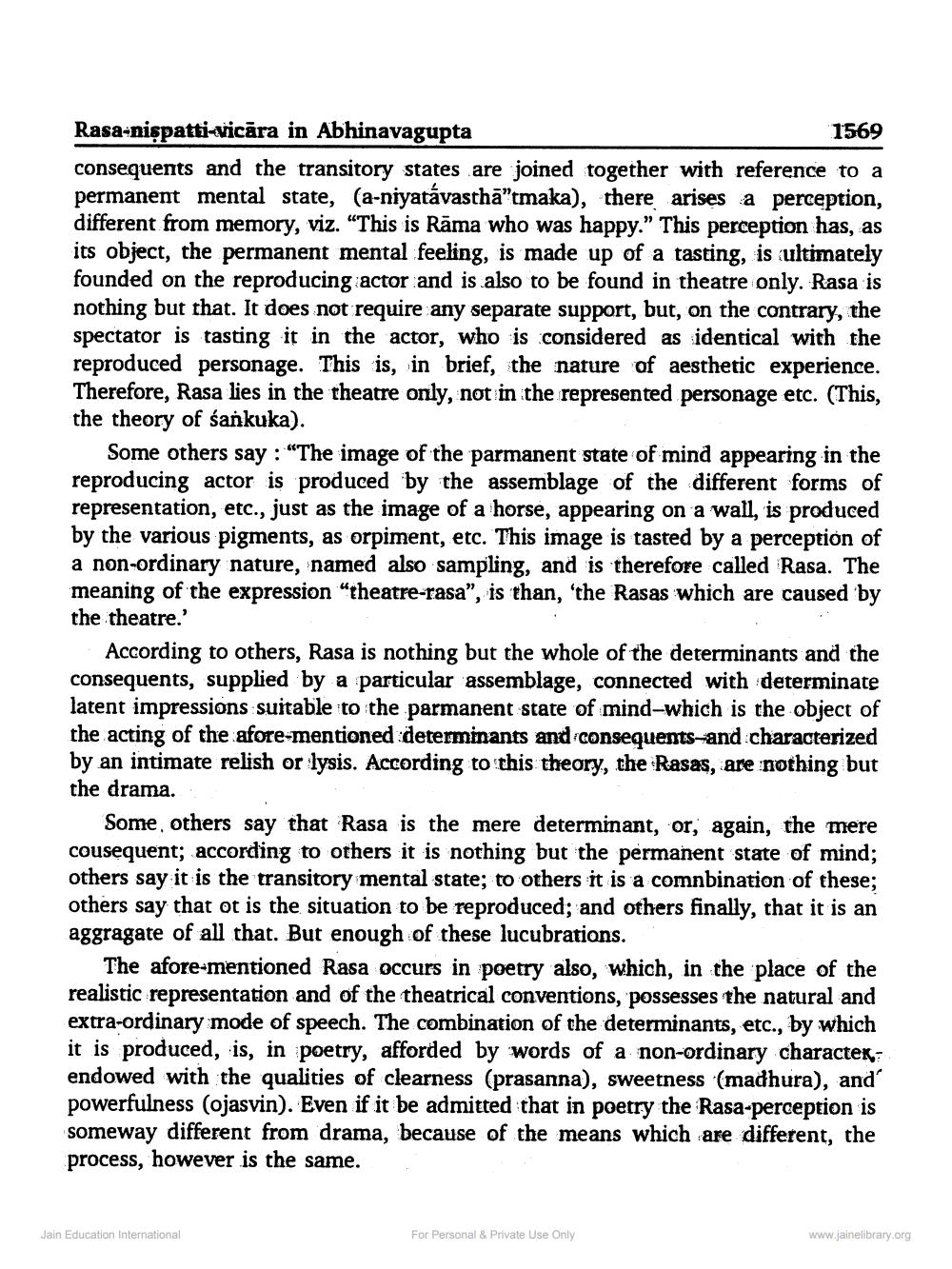________________
Rasa-nispatti-vicāra in Abhinavagupta
1569 consequents and the transitory states are joined together with reference to a permanent mental state, (a-niyatávasthā"tmaka), there arises a perception, different from memory, viz. "This is Rāma who was happy." This perception has, as its object, the permanent mental feeling, is made up of a tasting, is ultimately founded on the reproducing actor and is also to be found in theatre only. Rasa is nothing but that. It does not require any separate support, but, on the contrary, the spectator is tasting it in the actor, who is considered as identical with the reproduced personage. This is, in brief, the nature of aesthetic experience. Therefore, Rasa lies in the theatre only, not in the represented personage etc. (This, the theory of śankuka).
Some others say: "The image of the parmanent state of mind appearing in the reproducing actor is produced by the assemblage of the different forms of representation, etc., just as the image of a horse, appearing on a wall, is produced by the various pigments, as orpiment, etc. This image is tasted by a perception of a non-ordinary nature, named also sampling, and is therefore called Rasa. The meaning of the expression "theatre-rasa", is than, 'the Rasas which are caused by the theatre.
According to others, Rasa is nothing but the whole of the determinants and the consequents, supplied by a particular assemblage, connected with determinate latent impressions suitable to the parmanent state of mind-which is the object of the acting of the afore-mentioned determinants and consequents and characterized by an intimate relish or lysis. According to this theory, the Rasas, are nothing but the drama.
Some others say that Rasa is the mere determinant, or, again, the mere cousequent; according to others it is nothing but the permanent state of mind; others say it is the transitory mental state; to others it is a comnbination of these; others say that ot is the situation to be reproduced; and others finally, that it is an aggragate of all that. But enough of these lucubrations.
The afore-mentioned Rasa occurs in poetry also, which, in the place of the realistic representation and of the theatrical conventions, possesses the natural and extra-ordinary mode of speech. The combination of the determinants, etc., by which it is produced, is, in poetry, afforded by words of a non-ordinary character, endowed with the qualities of clearness (prasanna), sweetness (madhura), and' powerfulness (ojasvin). Even if it be admitted that in poetry the Rasa-perception is someway different from drama, because of the means which are different, the process, however is the same.
Jain Education International
For Personal & Private Use Only
www.jainelibrary.org




